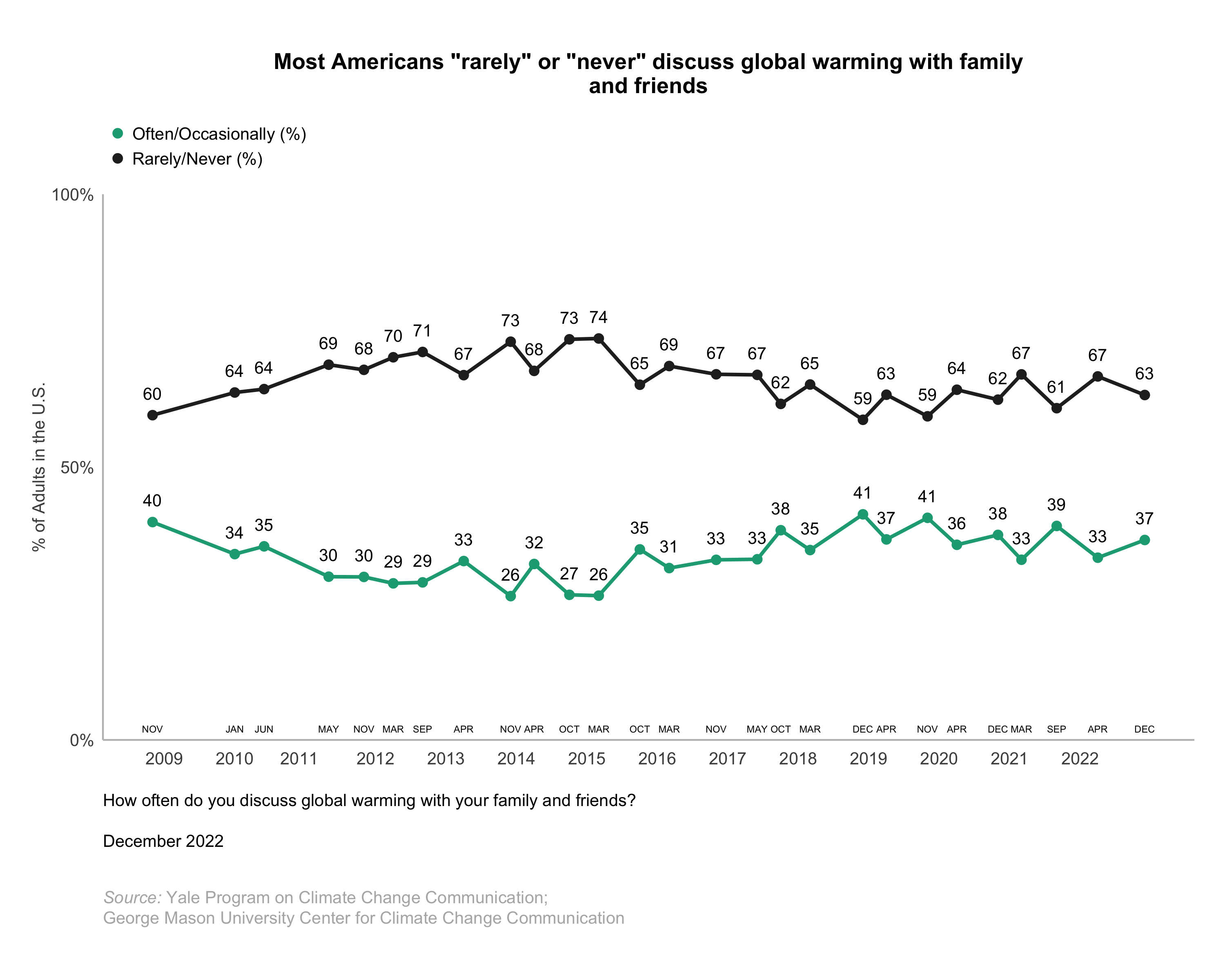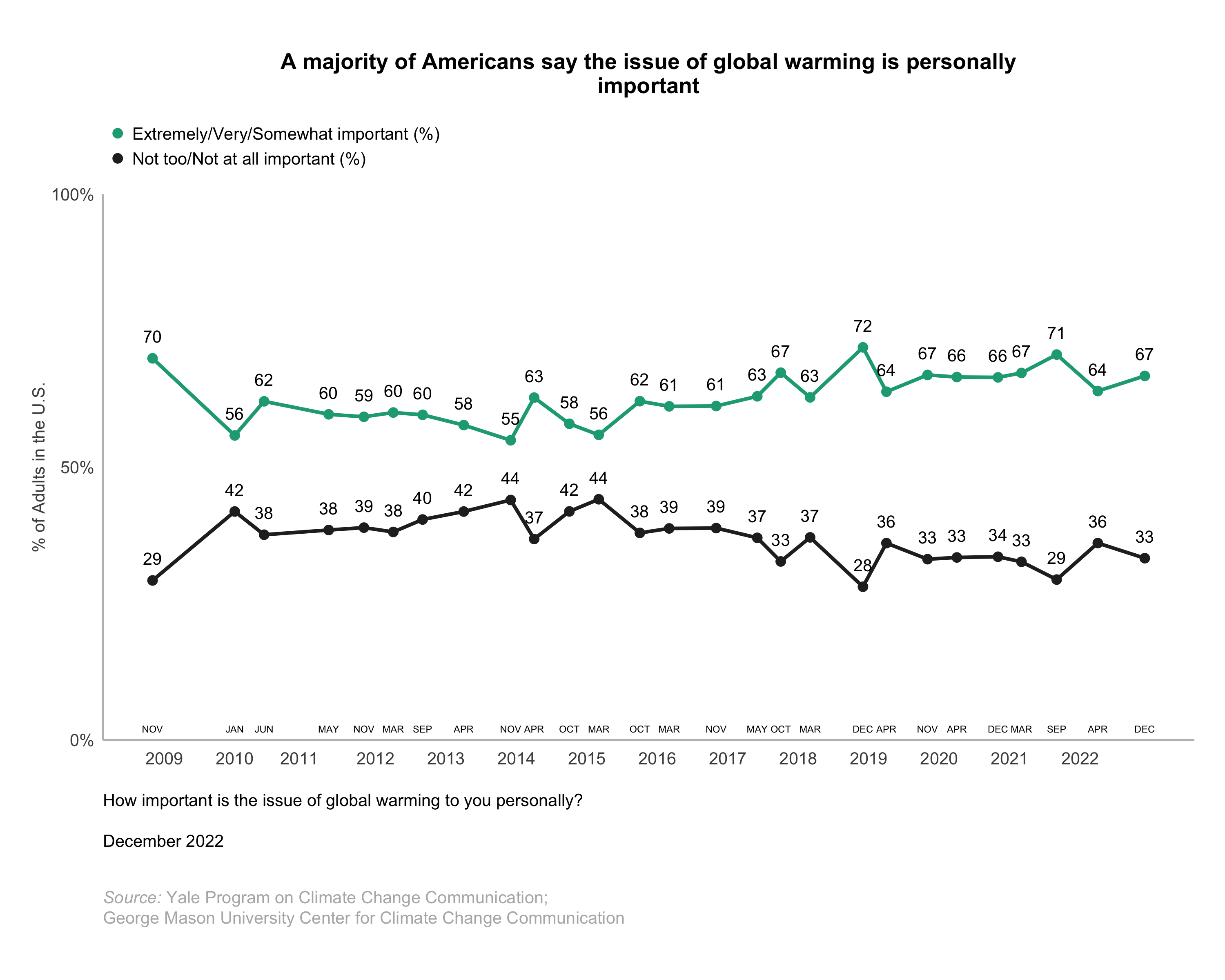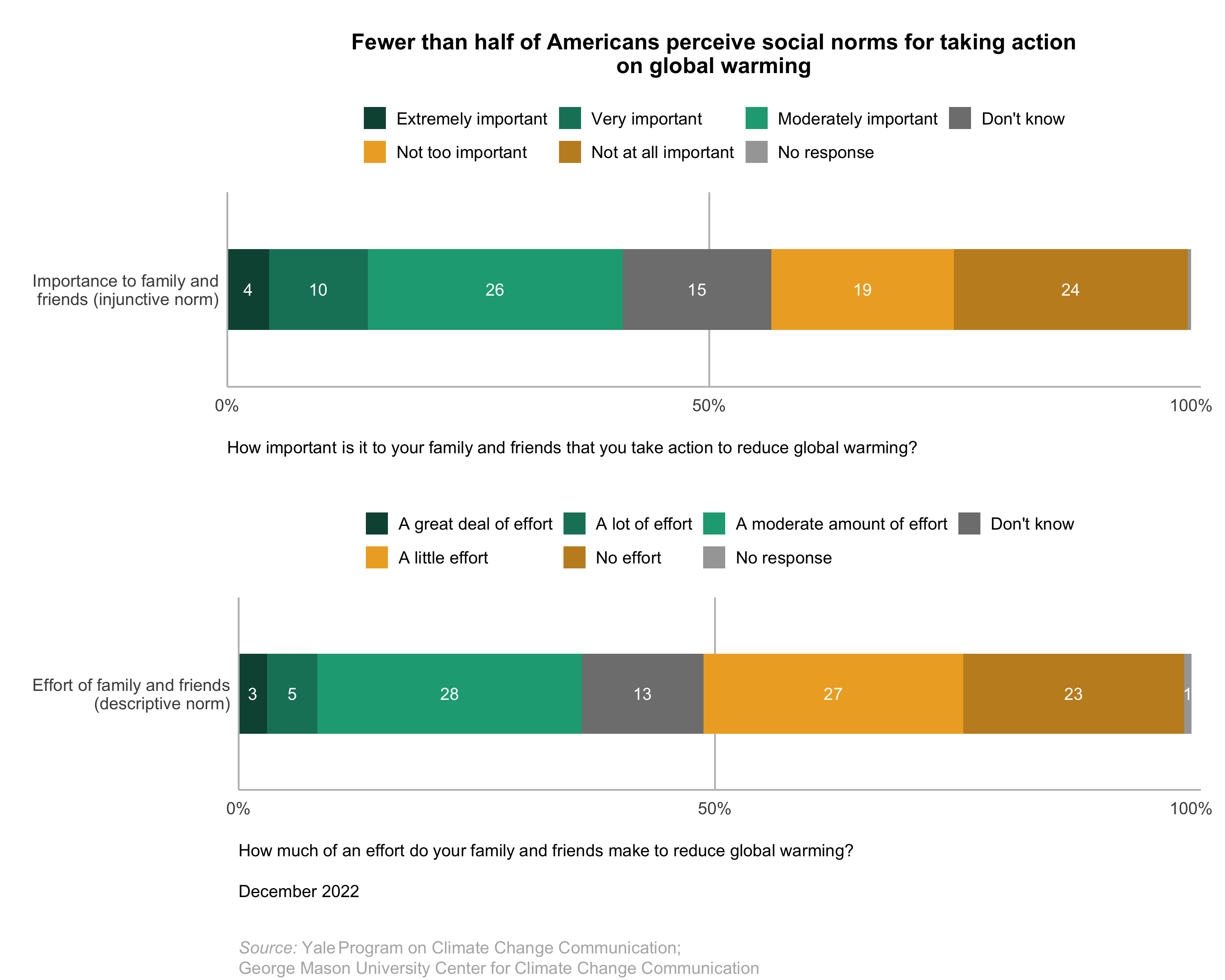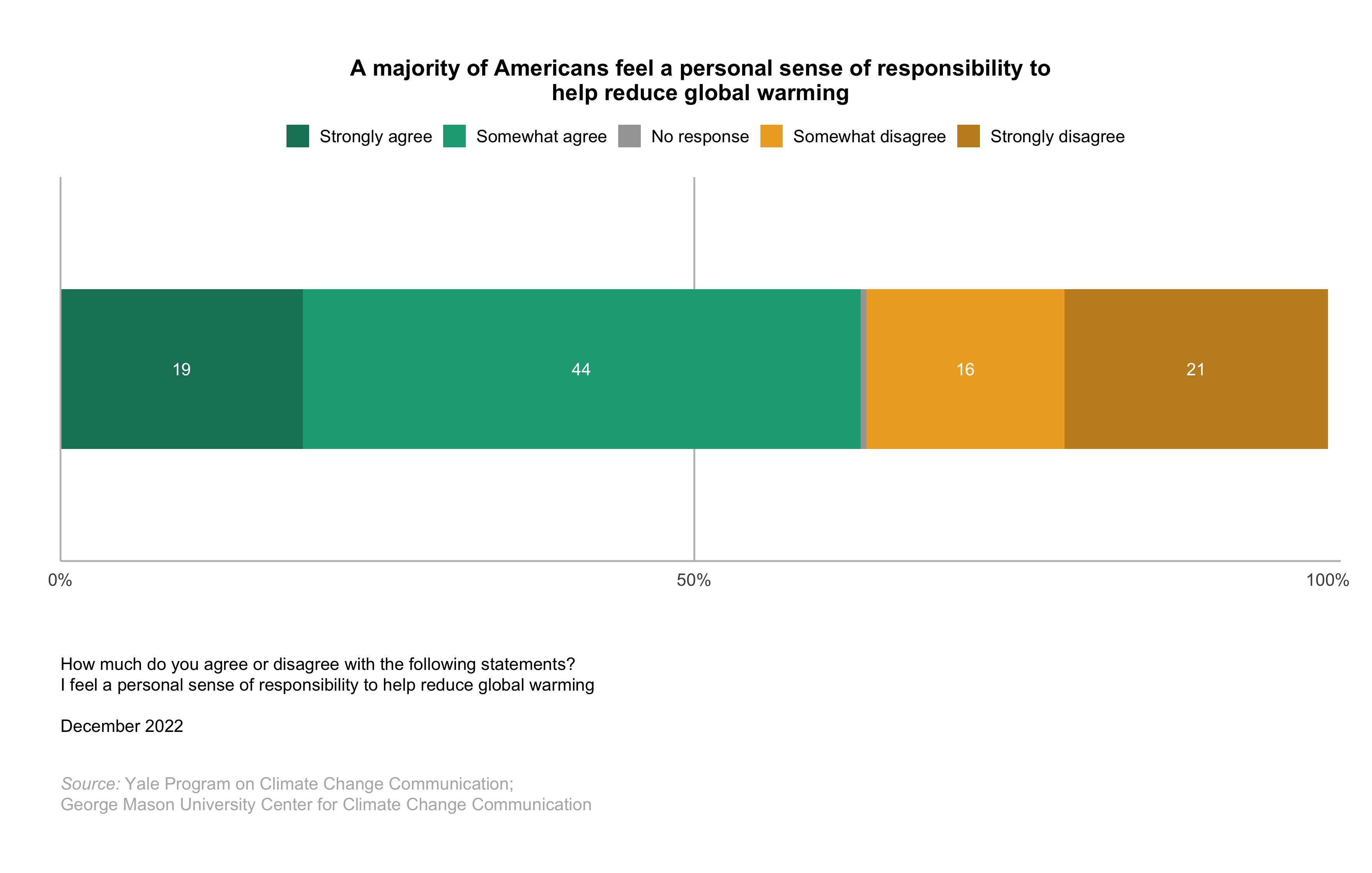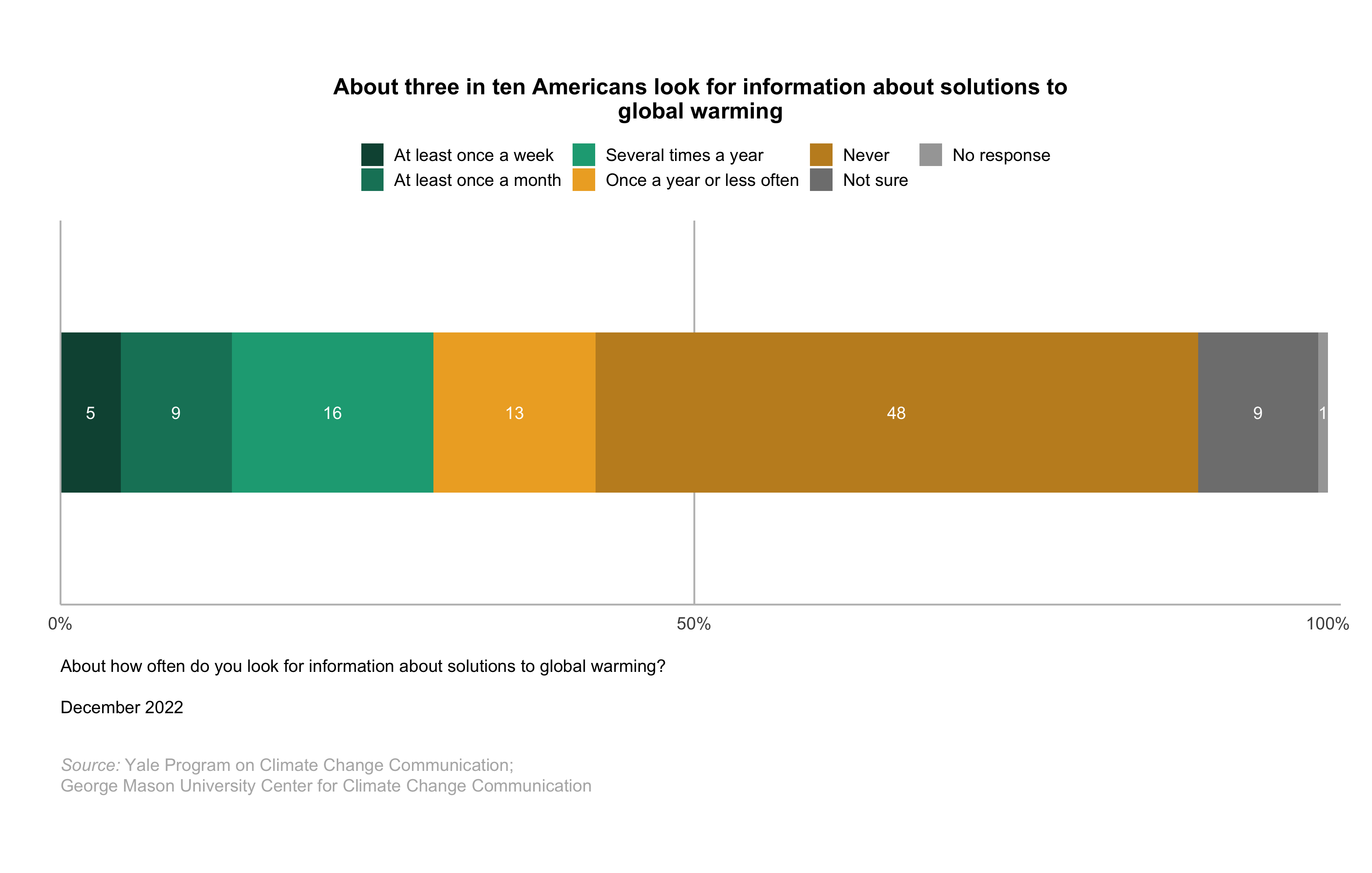Report · Feb 16, 2023
Climate Change in the American Mind: Beliefs & Attitudes, December 2022
By Anthony Leiserowitz, Edward Maibach, Seth Rosenthal, John Kotcher, Jennifer Carman, Marija Verner, Sanguk Lee, Matthew Ballew, Sri Saahitya Uppalapati, Eryn Campbell, Teresa Myers, Matthew Goldberg and Jennifer Marlon
Filed under: Beliefs & Attitudes and Climate Impacts
4. Personal and Social Engagement with Global Warming
4.1. Most Americans “rarely” or “never” discuss global warming with family and friends.
Most Americans (63%) say they either “rarely” (30%) or “never” (33%) discuss global warming with family and friends, while 37% say they discuss global warming either “occasionally” (29%) or “often” (8%).
4.2. More than half of Americans hear about global warming in the media at least once a month; fewer hear people they know talking about it at least once a month.
More than half of Americans (57%) say they hear about global warming in the media once a month or more often, while one in three (33%) say they hear about global warming in the media several times a year or less often, including 8% who say they never hear about global warming in the media.
In contrast, only one in four Americans (25%) say they hear people they know talk about global warming once a month or more often, while two in three (67%) say they hear people they know talk about it several times a year or less often, including 28% who say they never hear people they know talk about global warming.
4.3. A majority of Americans say the issue of global warming is personally important.
Two in three Americans (67%) say the issue of global warming is either “extremely” (14%), “very” (21%), or “somewhat” (31%) important to them personally. One in three (33%) say global warming is either “not too” (16%) or “not at all” (18%) personally important.
4.4. Fewer than half of Americans perceive social norms for taking action on global warming.
Social science research has shown that two types of social norms can have a powerful influence on people’s behavior: injunctive norms (the belief that friends and family expect you to behave in a given way) and descriptive norms (the belief that friends and family are themselves behaving in that way).Schultz, P. W., Nolan, J. M., Cialdini, R. B., Goldstein, N. J., & Griskevicius, V. (2007). The constructive, destructive, and reconstructive power of social norms. Psychological Science, 18(5), 429-434. doi:10.1111/j.1467-9280.2007.01917.x
About four in ten Americans (41%) perceive an injunctive norm, saying it is either “extremely” (4%), “very” (10%), or “moderately” (26%) important to their family and friends that they take action to reduce global warming. Similarly, 36% perceive a descriptive norm, saying their family and friends make either “a great deal of effort” (3%), “a lot of effort” (5%), or “a moderate amount of effort” (28%) to reduce global warming.
4.5. A majority of Americans feel a personal sense of responsibility to help reduce global warming.
A majority of Americans (63%) agree either “strongly” (19%) or “somewhat” (44%) that they feel a personal sense of responsibility to help reduce global warming.
4.6. About three in ten Americans look for information about solutions to global warming.
About three in ten Americans (29%) say they look for information about solutions to global warming several times a year or more often, while six in ten (60%) say they look for solutions once a year or less often, including 48% who say they never do so.
